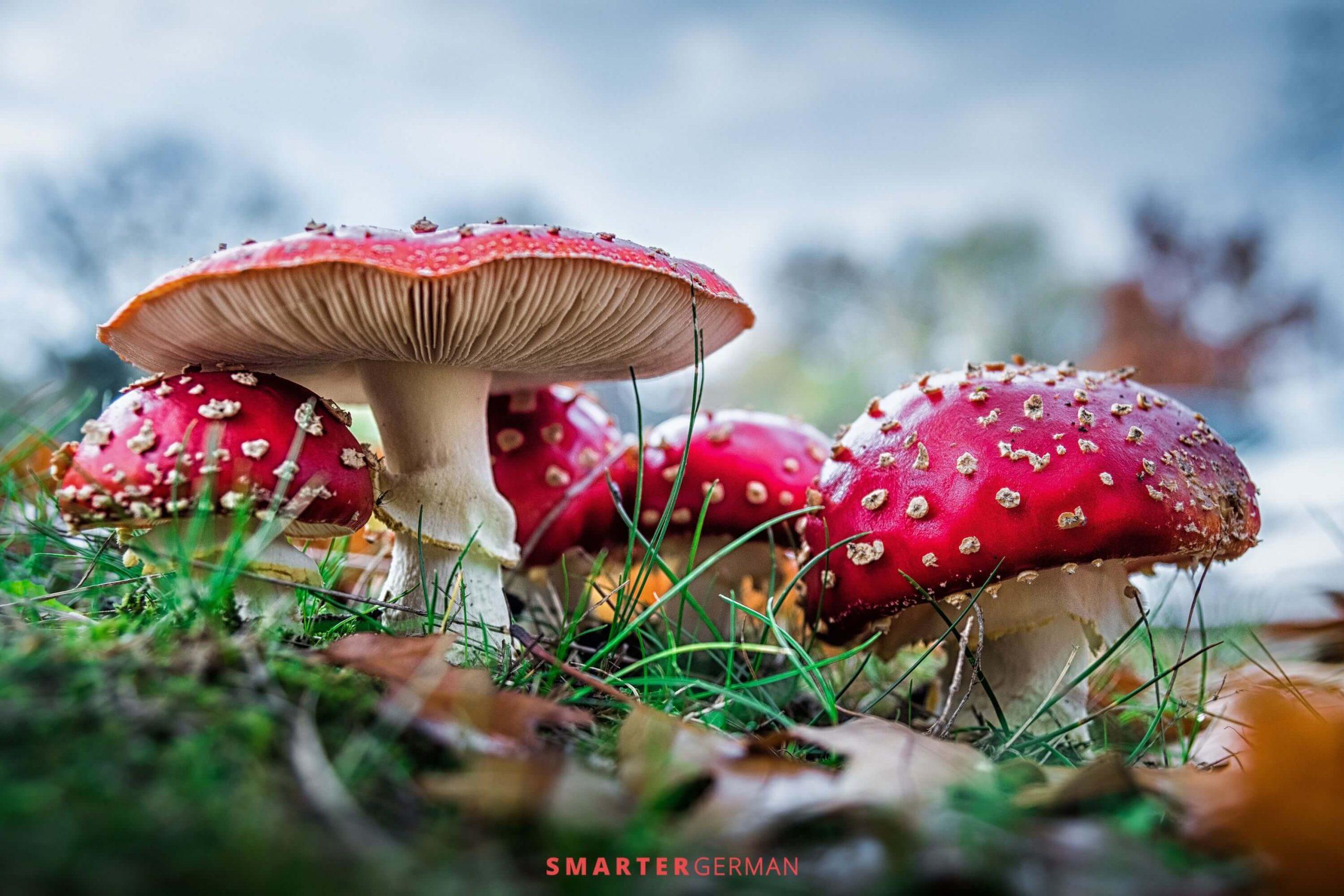For me, one of the highlights of learning German with SmarterGerman is getting to know some of the extra words of interest related to the text in the ‘Get to the core of German’ step. Sometimes this is just because of how it sounds in English, particularly with words involving -fahrt or -fach. When I learned German at school for two semesters I took a particular delight in always using the word Fachwerk in any sentence I had to construct out loud for the class. But, putting schoolboy-level humour aside, there are some great words that have cropped up now and then while here in Germany talking with Germans.
Glückspilz: (literally: Lucky Mushroom) Manche Leute sind echte Glückspilze. There are traditions of mushrooms as good luck symbols, but to be called a mushroom certainly seems strange, since we have the expression in English that if you are a mushroom you are kept in the dark and fed on … something; so it’s also a symbol of ignorance. But, maybe luck and ignorance go hand in hand anyway? I found it funny at the time because I remembered the word ‘Pilz’ and thought that it related to the contents of the meal I was about to eat, not how lucky I was to be eating it.
Sehenswürdigkeit: (literally: Seeing Worthyness) After only a short amount of exposure to the German language, we all realise how common and magnificent portmanteau is in this language (not to mention how hard it is to sound these words out). When they don’t have a word for something, the Germans just collect a bunch of words and stick them together. Done. Some of them are quite straight forward, like this one for ‘tourist attraction’ or ‘place of interest’ we might say in English. Things worth seeing … have seeing worthyness, of course. When I heard it, I thought I was being asked to ‘see a word’ of something, like I had missed the meaning of something.
Der Stubentiger: (literally: Lounge Tiger) A grandiose word for a house cat, and for many house cats, a very appropriate one. After hearing this I discovered a couple of other related words with Stuben that I found funny. Stubenhocker (literally: lounge stool) is a german equivalent for ‘couch potato’, a stool being more Germanically appropriate than a comfortable couch, even for a lazy German. And there is also stubenrein (literally: lounge clean) which relates specifically to potty-trained children or even housebroken animals, so that your Stubentiger can also be both a Stubenhocker and stubenrein … hopefully.
Fernweh: (literally: far away pain) With this one I really had no idea, although I knew that it was being used to ask about my motives for coming to Germany, so I had some context. It’s a word used to describe someone who wants very dearly to travel and be somewhere else.
Ausfahrt: (exit) No, I’m not going back on my word about the schoolboy humour. This was merely a problem of context. Having been picked up from the airport and driving to our accommodation, I had seen several signs along the Autobahn saying ‘Ausfahrt’ with an arrow point to an exit. So I said, ‘This Ausfahrt must be a big city, huh?’
Das Dingsbums (literally: the thing-bang) This one I came across on the internet, and appears to be a regional informal word that comes close to the English word thingamajig. This seemed like a fun word, but then, once I looked further into it, I also found out it was the name of a 1982 children’s television show for kids from 6 to 11 in Communist East Germany for a kind of political youth organization called the Young Pioneers. Membership was ‘voluntary’ … but parents would need to voluntarily opt-out, since membership was automatically organised through the schooling system. So maybe not quite as fun as I had thought…
But learning German with SmarterGerman: this remains fun. Try the online courses and learn German in a completely new way!

